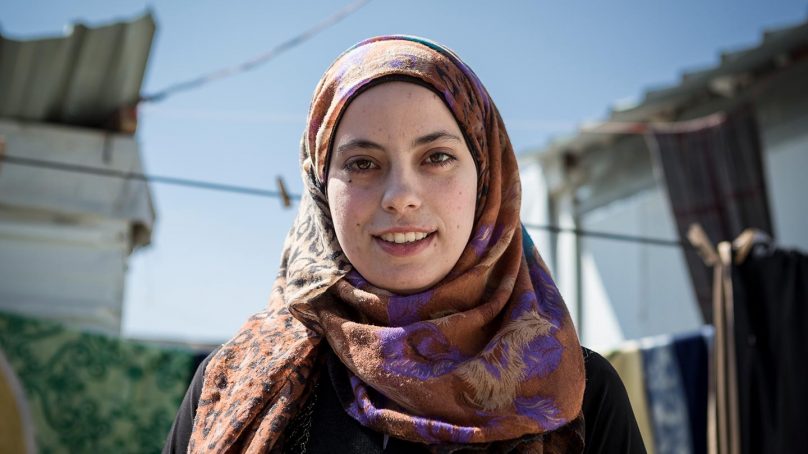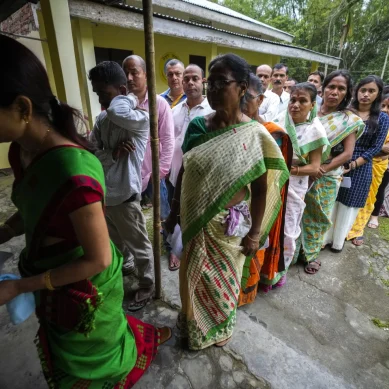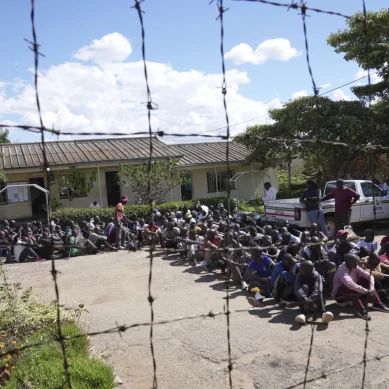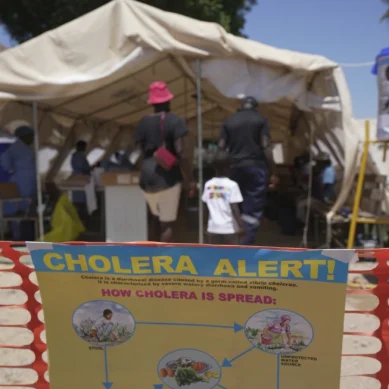
Unsurprisingly, female refugee scientists can face extra challenges – including gendered, cultural and socio-political barriers to academia. At the Council for At Risk Academics (CARA), a London-based charity that helps academics to continue their work at one of 124 partner universities and institutions in the United Kingdom or in other safe locations, there is a 6:1 ratio of men to women among programme participants.
The following (continued) is testimony of a female scientist uprooted from her home in Syria:
Hoping our stay would be temporary, I found work as a chemistry teacher rather than continuing my own education. But I didn’t speak Turkish or have Turkish citizenship, so my employment options were limited. It was really difficult when we first moved to Turkey because we couldn’t communicate with others, which also made sharing my CV or presenting myself or my work so much harder.
My husband, too, studied chemistry and worked as a teacher in Syria. Three years on from our arrival in Turkey, we realised that we would be living there as refugees for quite a while. We decided to think of ways to continue with our academic goals.
In 2016, I started learning Turkish and made contact with CARA. I was invited to a round-table discussion involving academics and Turkish officials; I was one of only two female academics. CARA provided us with English-language courses and tutors. These weekly sessions helped me and fellow Syrian academics to improve our language competency; we are now familiar with English grammar and how to read, but conversation is still difficult.
Ultimately, I decided to pursue a research scholarship from the Turkish government to conduct my PhD, and was awarded one in 2016 after an initial rejection. I started my PhD in chemistry the following year. Many Syrians have been granted Turkish citizenship. Employment options are very different depending on whether you have citizenship or not. If you don’t, you can teach foreigners or international students as long as you can speak either Turkish or English, but contracts are temporary.
To get a job in academia, immigrants must get an equivalence certificate, a document stating that your degree is equivalent to the corresponding Turkish degree. These certificates are issued only by the Turkish Ministry of Education.
It’s difficult to get one: I took the required exam last month for my master’s degree, but I did not pass. A group of colleagues are signing a petition to have this requirement reviewed, because so few people have passed.
I experience more equity in Turkey as an educated woman in academia than I did in Syria. But, as a refugee here, I’ve been on a path that’s full of challenges: I’ve had to travel long distances every week, produce research in a foreign language, collaborate with people I didn’t know and live in a world of uncertainties.
There are very few female Syrian academics compared with male ones; I know only about ten other female researchers. I hope that women can be provided with more support to increase those numbers.
I know I will achieve something; I am meant to be here in Turkey. In May, I published a review paper, and I plan to finish my PhD in three months’ time.
My advice to other refugee scientists is not to waste any time once you move to a new country. Start learning the native language as soon as possible. And don’t make the mistake we made: don’t wait for the situation to get better. Find ways to continue on an academic path. If the situation improves in Syria and we can go back, we will be going back stronger than before.
I’m from a village on the Red Sea coast of Yemen. I got my PhD in nuclear physics in November 2014 from Cairo University, and returned to Yemen the following year to build a life there with my wife and three children. By then, the country’s civil war had escalated, and on March 26, 2015, there were air strikes led by Saudi Arabian forces that were intervening on behalf of the Yemeni government. Soon after, there was no water, no Internet, no anything.
I focused on how to support my family, and found work teaching in the Faculty of Engineering at the University of Hodeida, based in the Red Sea port city of that name, earning about $90 monthly. I worked there half-time for about two years. Sometimes I taught courses far from my speciality to keep my family fed. We lived in a single room without beds, water and electricity. I remember trying to find a street lamp so that I could write lectures and correct the exam papers of my students. In the summer, when there was no teaching work, I drove a taxi and worked in a sweet factory.
I am a theoretical nuclear physicist. When I heard about the IIE-SRF scholarship, I applied and got a grant in 2018. In August, I travelled to Jordan. It was a difficult and terrifying trip, on which I was interrogated at dozens of security checkpoints. In February 2019, my family joined me in Amman. I found work as an assistant professor in alternative energy technology at Philadelphia University in Amman, the institution that hosted my scholarship. I then applied for a scholarship from the Polish National Agency for Academic Exchange, an organization set up in 2017 to foster academic mobility between Poland and other countries.
I joined the Heavy Ion Laboratory at the University of Warsaw for two weeks in early 2020. I had met its principal investigator several years earlier at an international conference, so he knew my situation in Yemen and sponsored me. Then, COVID-19 emerged, and I returned to Jordan for six months. In September 2020, I returned to Warsaw to continue my research with a mini-scholarship from the IIE-SRF — about five months of funding.
The biggest challenge lately has been securing residency for my family in Jordan. In April 2021, I returned to Jordan to resolve their residency status. It’s been a long, convoluted process. I now have to pay fees to receive residence cards for my family. Hopefully these will allow my family to receive visas to enter Poland, and join me there next year.
I have worked hard. In 2021, I published an article in the International Journal of Modern Physics E, and I am a co-author and first author on two papers published by Physical Review C, a nuclear-physics journal and the best in my field. I forget about visa and residency problems when I’m working
In 2020, I co-founded the Association of Yemeni Academics and Professionals to assist Yemeni academics abroad. We have a Facebook group and a YouTube channel. We share information on grant or job opportunities, and we write recommendation letters. I’m confident in myself, and confident that I will reach my career goal of one day working at top US research laboratories.
- A Nature report











